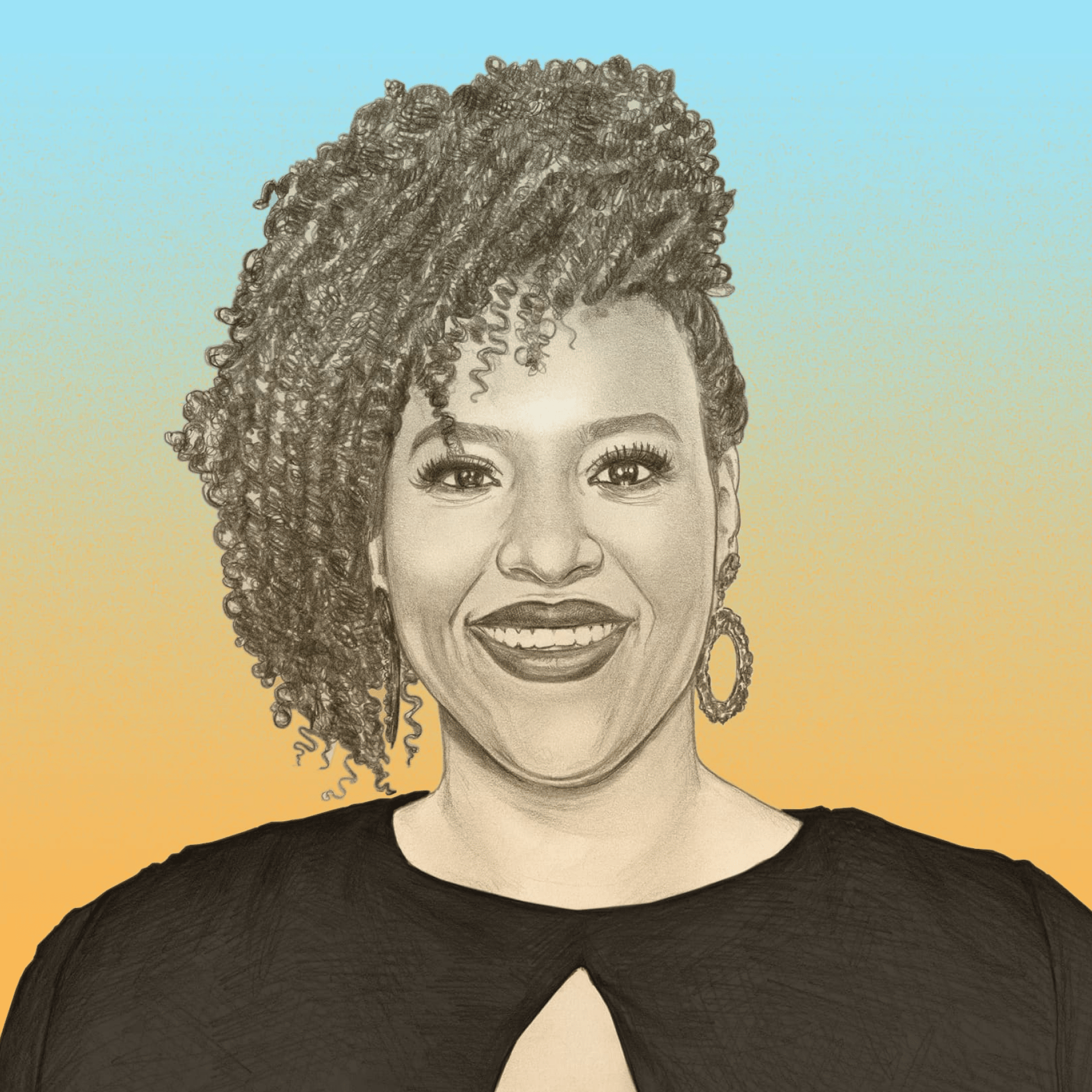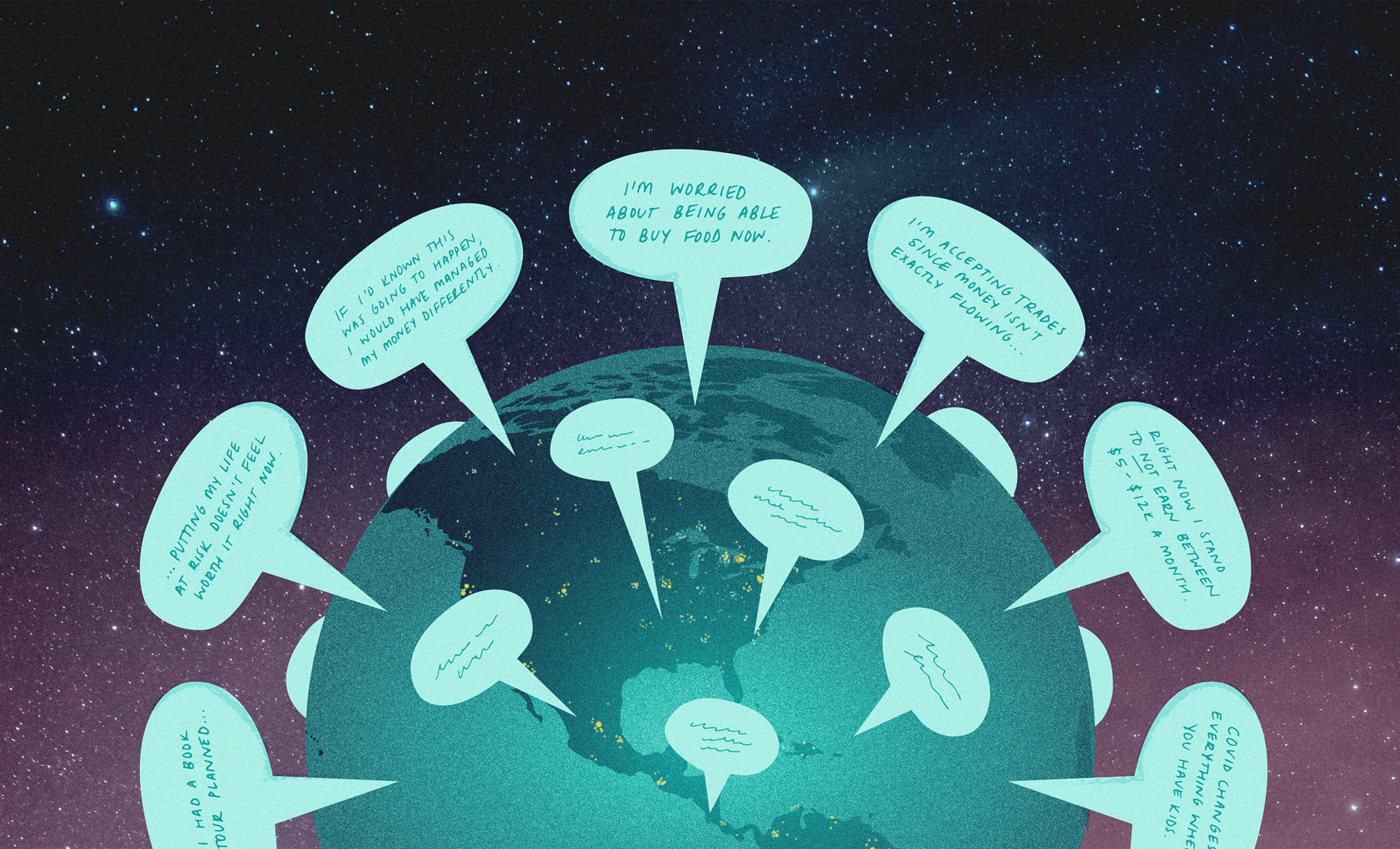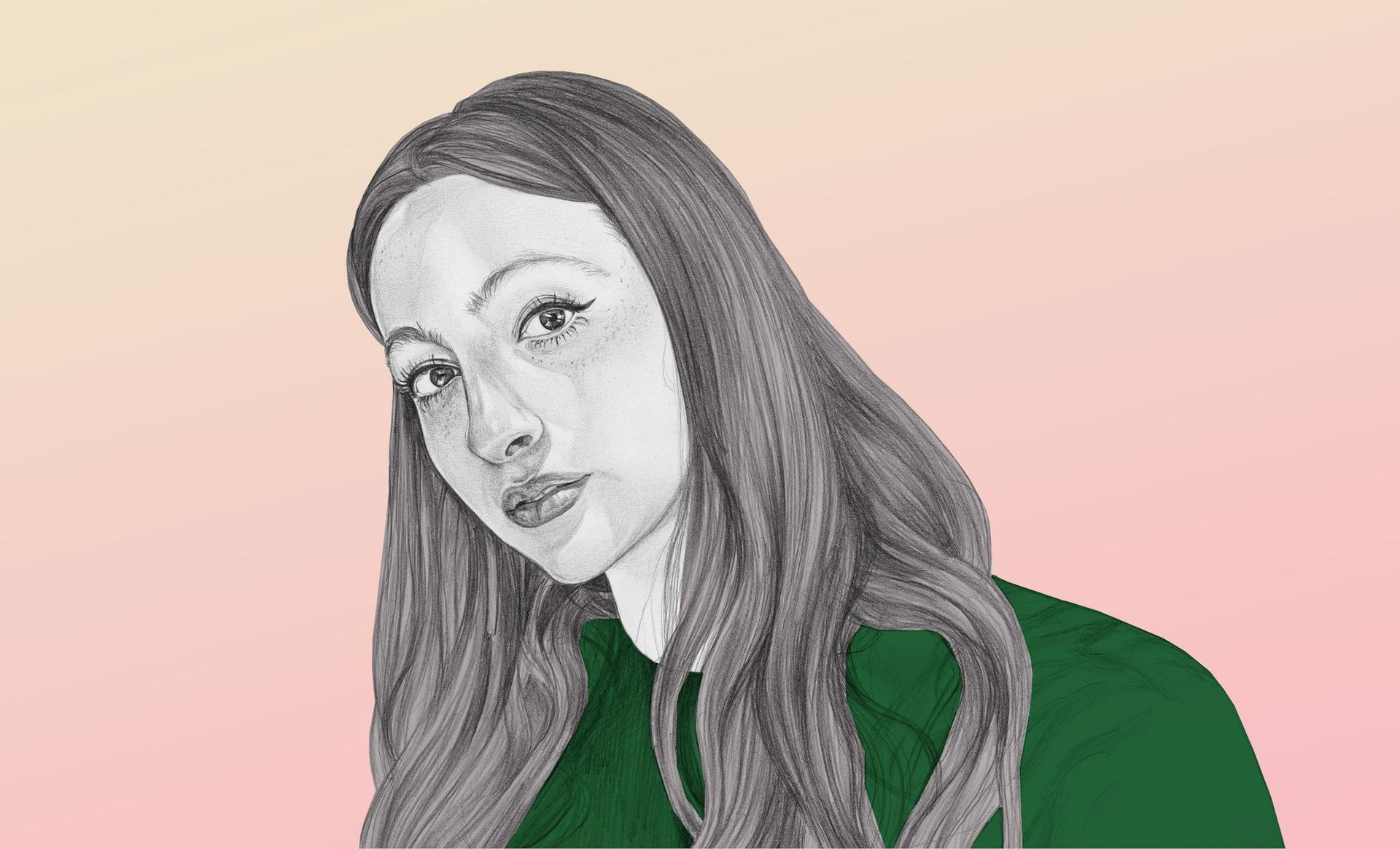
Money Diaries
Natasha Rothwell's Character in “The White Lotus” Finds an Angel Investor. Her Real Life Didn't Quite Work That Way.
A Money Diary about subsidized housing, writing for “Saturday Night Live,” and getting into credit card debt from the actress (“Insecure”) and writer.
Wealthsimple makes powerful financial tools to help you grow and manage your money. Learn more
I think, for me, what’s so interesting is that I never wanted to be on Saturday Night Live. Like, I had never seen black women on the show that looked like me. And because I didn’t see myself represented, it was never aspirational for me. I always knew that I wanted to continue to perform and act and write and be successful, but I had already accepted the fact that SNL wasn’t going to be a part of my narrative. And so when it became introduced into my narrative, I had to then figure out: Here it is, here I am. I’m writing in 30 Rock. What does this mean to me?
I grew up all over the place because my dad was in the Air Force. I was born in Wichita, Kansas, and from there I lived in a bunch of places. I went to two high schools, two middle schools, two elementary schools, and found myself drawn to the theater communities at all those schools, just because theater continues to be the most open and accepting group of people. When you’re the new kid all the time, I felt myself accepted in this community.
As a kid, I didn’t think about finances outside of my wants and needs. I knew that if a situation came up and I’m at a store and I wanted something and my mom’s like, “No, we can’t get that right now,” I sort of understood that, “Oh I can’t get that right now,” meaning, there’s not enough money for that. I had moments where I understood my parents did a lot with a little. Four kids on a military salary is not a lot. I sort of tempered my expectations based on what I knew my parents were able to do, even without really knowing that’s what I was doing at the time. But I remember moments, like when the church I went to went on a ski trip, and a family in the church was going to pay my way to go. And I realized — when I was 13 or 14 — oh, other people have more than what we have. It was the first time really understanding the financial hierarchy of the other kids in my class and in my church, that it wasn’t all the same everywhere.
The job click didn’t happen for me until my freshman year of college. I originally majored in journalism. In my head I had concocted this (pretty ridiculous) Afterschool Special in which I convinced myself that my parents would just lose it if I told them I wanted to major in theater and live a life of acting and writing creatively. And mind you, this is a conversation that never happened out loud — this was all in my head, my being dramatic. I was just like, I don’t want to have that conversation, I will just do a job that I know will make them happy.
So I went to Ithaca College and majored in journalism and was wildly unhappy. And after my first semester, I came home and sat my parents down and created this very tense moment. I confessed to them that I did not want to do journalism, that I wanted to do theater, and they looked at me as if I was just saying the most obvious thing in the world. They’re like, yeah, we thought it was weird that she wanted to do journalism, but we were like, you know what, we’re going to support her in what she wants to do, maybe that’s what she wants to do. I feel really lucky that they were supportive when things weren’t as rock solid as they are now, and they continue to be supportive.
I remember having a breakdown at graduation. I was in a stairwell, in my cap and gown, and I was crying because I was like, I don’t know what’s next, like how am I actually going to do this?

Sign up for our weekly non-boring newsletter about money, markets, and more.
By providing your email, you are consenting to receive communications from Wealthsimple Media Inc. Visit our Privacy Policy for more info, or contact us at privacy@wealthsimple.com or 80 Spadina Ave., Toronto, ON.
I transferred to University of Maryland, and the plan was to stay there for the first semester of my sophomore year while I auditioned for big fancy theater schools — Yale Drama and NYU. I was going to get into one of them and prove that I’d made the right choice. While I was at University of Maryland, I auditioned for their creative and performing arts scholarship — it was a full ride — and I got it. It was a hard decision initially to take it, because I had given myself this more romantic storyline — I was going to get my Oscar that summer, you know, something ridiculous. The reality was it was just really practical to go to University of Maryland, and financially it was the best decision. My sister was in school, I was two years into school, and my little sister was graduating high school, about to go to college. So I made the decision mostly for me, but I definitely had my parents in mind.
I was woefully unprepared about how to put food on the table when I got out of college. I remember having a breakdown at graduation. I was in a stairwell, in my cap and gown, and I was crying because I was like, I don’t know what’s next, like how am I actually going to do this? The reality of just like, OK, I have to feed myself and put a roof over my head and pay my bills.
During school I had a work/study in the box office at University of Maryland, and so I’d work the front of house and tear tickets and hand out programs. They had a job opening I found out about it my last semester senior year. So tearing tickets for a show and handing out theater programs to different concerts and things, in my mind I was like, I’m physically close to the thing I want to be doing.It paid — I can’t even remember right now what it paid. I think maybe $30,000. But I was like, fuckin', Monopoly Man! THIS. IS. CRAZY! I moved in with some girls that were in the theater school with me, and we got a house together right outside campus. Mind you, my job was still on campus, so this big leap into adulthood could not have more training wheels on it.
It takes a person with young person energy and that grit to gig, because it’s just, OK, I have to chase down this independent contractor for this check, and I have to make sure I have my jobs lined up for this month, but how am I going to pay my rent the next month?
I auditioned for and got onto the main stage company of Washington Improv Theater. I was getting pulled closer and closer to DC proper from the Maryland suburbs and going in to audition and try to do shows, and eventually left my sweet gig at University of Maryland for a myriad of odd jobs — they were all teaching artist jobs, but you’d have like 20 of them to pay the rent. I was working at Arena Stage and at various theaters downtown, at Woolly Mammoth, trying to find a bunch of jobs that would equal enough to cover my day-to-day, but also would allow me to audition and do shows. Gigging takes a real young person. It takes a person with young person energy and that grit to gig, because it’s just, OK, I have to chase down this independent contractor for this check, and I have to make sure I have my jobs lined up for this month, but how am I going to pay my rent the next month?
I was completely foolish with money. I had credit cards because I was just like, you know what, I’m just going to open the one, and that’s the lie that we tell ourselves to be like, I just gotta get by. And I honestly opened my first credit card, because, after University of Maryland, I told myself I was gonna audition for grad schools for theater, which was just me being very scared of real life. So I put all of my auditions on the credit card, and transportation and hotels to and from New York. And I didn’t get into any of these schools. I was waitlisted at one. But once that card was open, I would just look at this glowing card in my wallet and be like, Well, I could put my rent on my credit card, and then I would have money for my groceries and that audition and...the list goes on and on.
Recommended for you
When I moved to New York, I’d been gigging, doing the same thing, being a teaching artist — I was teaching improv at UCB, at the People’s Improv Theater. I was trying to get out of debt and save and have enough money to live in New York. And I won the housing lottery. It’s like the holy grail — everyone hears about someone who’s won it, and they’re just like, I don’t know if that’s real! I’m here to tell you it’s very real. It was artist housing in downtown Brooklyn — like, the train stop was on my block. And the rent was like $725 including utilities! And cable! I honestly credit that apartment for my even being in New York long enough for SNL to find me, because if I did not have subsidized state funding for housing, I would’ve had to pack up my bags, New York would have kicked my ass, and I would have gone home.
I was performing at UCB, and the artistic director came backstage and said that someone from SNL in the audience asked for my information, and I freaked out. They reached out to me and wanted me to put myself on tape for acting. And I did that, and I heard nothing for a year. And I was like, cool, that was a fun, scary thing I did, but I did it. And then the following year is when Kenan said that he was no longer going to play women, and then the hunt was on for SNL to find women of color. And so they held these secret, not-so-secret showcases that I got asked to do. So I performed at that showcase, and Lorne Michaels was in the audience as well as a bunch of the SNL staff, and I got selected to do a proper audition at Studio 8H at 30 Rock, the holy grail.
I auditioned, felt really good about it, and then didn’t hear anything for three more months. I was like, wow, I love this, this feels a lot like dating! It’s just like, OK, I felt like it went well, you called me back, I showed up, I did my best.
Then Sasheer Zamata got it, and Sasheer’s a dear friend of mine, so I was so stoked for her. And then my manager got a call and said the head writers wanted to meet with me because they would like me to write for the show. They had said that my audition was one of the best-written pieces they’d seen. And I said, yes! Absolutely yes, I would want to write.
That was sort of the defining moment of my career. There was before SNL and after SNL in terms of what doors that job tends to kick open for people. It created opportunities for me that I felt like I was ready for. What is success — it's opportunity meeting preparedness, right? I feel like digging into New York and doing my time and getting my hours in made me ready for those opportunities once they were there.
I was there for one year and wasn’t asked to return — that for me was less devastating. I mean it was for sure devastating because you want to be asked to return, but the reality was, this is a thing that was never a part of my narrative to begin with, so now I’m back to the course of action, which is to work hard and to continue on that path outside that.
When we approach the topic of money on , we try to tell the stories of those characters honestly. All of the stories from the writers room and real-life experiences with romance and sex and relationships and money. We each had very different relationships to money and it was very important for us to show how our real-life friendship circles reflected a wage gap. How when Issa and Molly hang out, Molly has unlimited funds and Issa is on a budget. And what is it like for Tiffany, who is married and is expecting — how do you deal with that introduction into finance?
For me, I was more interested in how Kelli, my character, talked about money. I was interested in setting up a pattern of behavior for her where she indulges and she splurges, but she also budgets for that. So Issa’s very taken aback when she learns how financially sound Kelli is given how she indulges. I was thinking through Kelli’s relationship to money based on how she plays money over the course of the last three seasons. So I didn't do a specific sit-down tutorial with Quicken. But it was really fun for us to tap into our own life experiences, to explore what it means to be in a financial friendship circle where money’s different all around. And I think it makes for honest storytelling — it’s just real life.
As told to Kate Dries exclusively for Wealthsimple. Transcript edited and condensed for clarity. Originally published October 4, 2018.
Wealthsimple uses technology and smart, friendly humans to help you grow and manage your money. Invest, save, trade, and even do your taxes in a better, simpler way.








